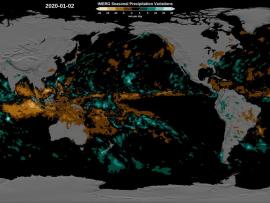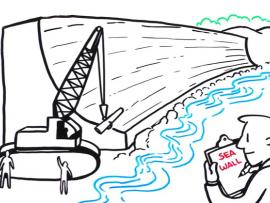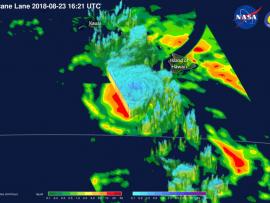Browse Satellites Resources
Browse Satellites Resources
Primary Topic:
Subtopics:
Type:
Summary:
In this article from the summer 2024 edition of The Earth Scientist, learn about NASA's Global Precipitation Measurement mission and the many tools and resources it offers for understanding Earth's water cycle and weather.
Primary Topic:
Subtopics:
Type:
Summary:
A collection of resources exploring how NASA satellites like GPM can help monitor and predict Earth's climate.
Primary Topic:
Subtopics:
Type:
Summary:
In this IQuest, you will explore resources to help you learn about the Sentinel-6 Michael Freilich satellite, the science behind sea level rise, and the STEM related careers of several of the scientists and engineers involved with this effort.
Primary Topic:
Subtopics:
Type:
Keywords:
Summary:
Learn all about hurricanes, the most violent storms on Earth, and how NASA uses satellites to study and understand these storms.
Primary Topic:
Subtopics:
Type:
Keywords:
Summary:
The second spinoff video for the Science on a Sphere film "Water Falls." This video looks at the uses and advantages of remote sensing.
Primary Topic:
Subtopics:
Type:
Summary:
GPM Application Science Lead, Dr. Dalia Kirschbaum, explains how GPM observes snow, and the importance of understanding snow characteristics and distribution in a changing climate.
Primary Topic:
Subtopics:
Type:
Keywords:
Summary:
GPM Application Science Lead, Dr. Dalia Kirschbaum, explains how landslides and floods occur, and how satellite imagery is used in understanding these disasters.
Primary Topic:
Subtopics:
Type:
Summary:
A time-lapse video that shows the assembly and testing of the GPM Core Observatory satellite in one minute.
Primary Topic:
Subtopics:
Type:
Keywords:
Summary:
NASA and JAXA released the first images captured by their newest Earth-observing satellite, the Global Precipitation Measurement (GPM) Core Observatory, which launched into space Feb. 27, 2014.
Primary Topic:
Subtopics:
Type:
Keywords:
Summary:
A video describing how the GPM constellation turns observed radiances and reflectivities of global precipitation into data products.











